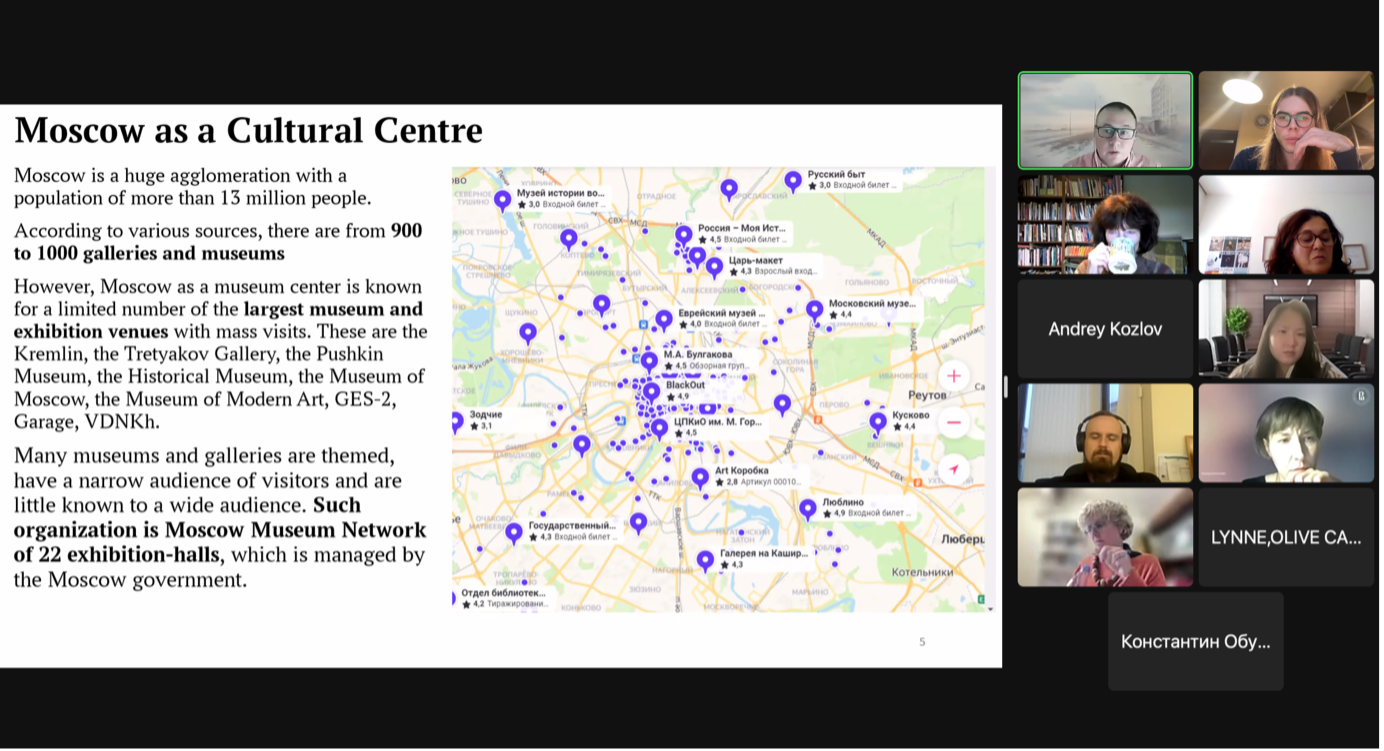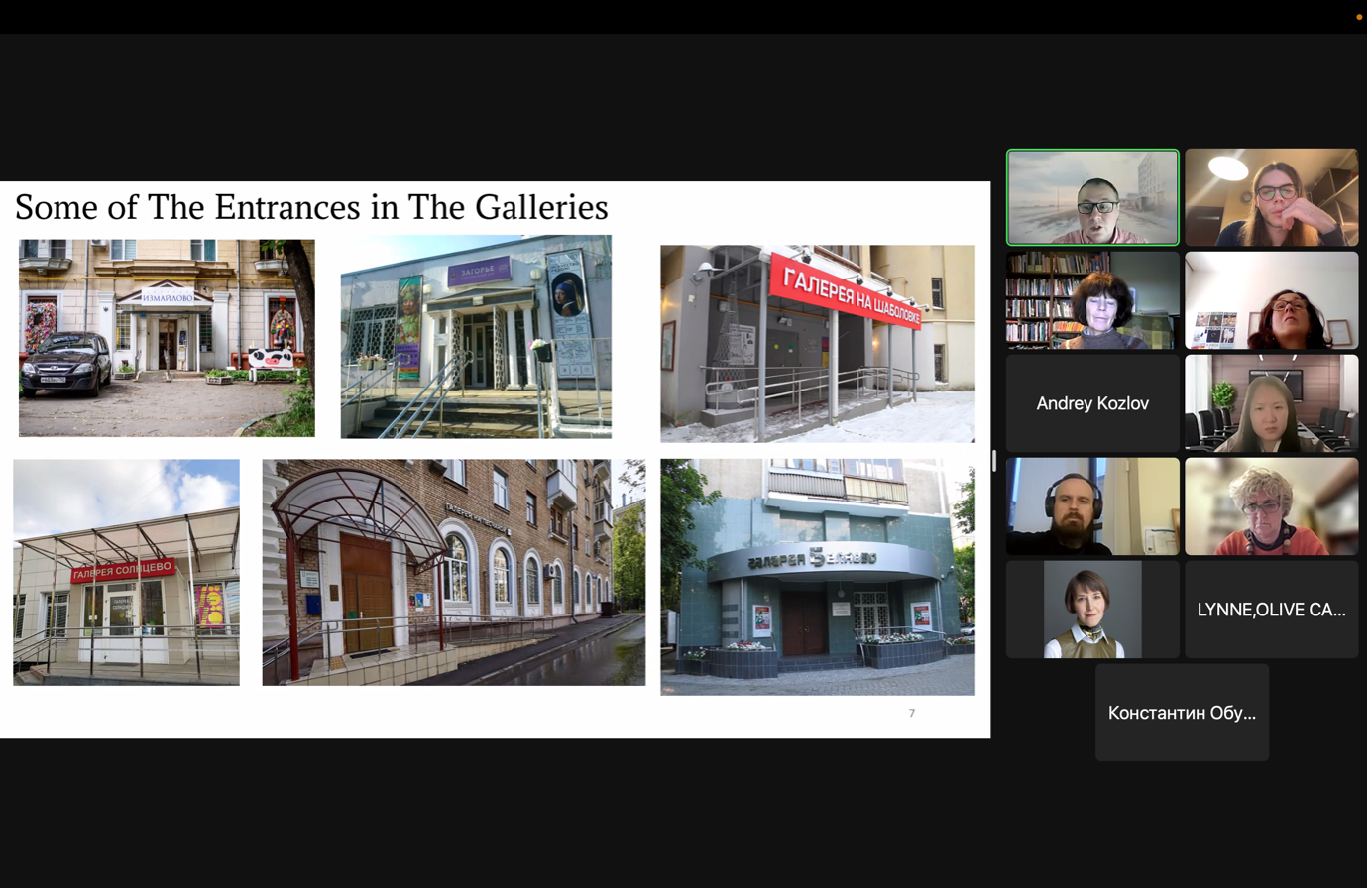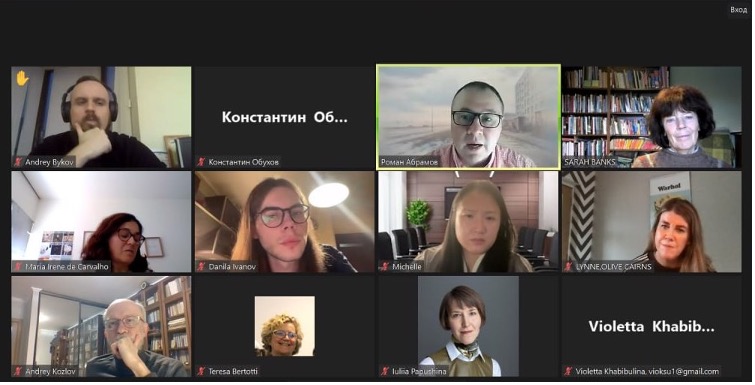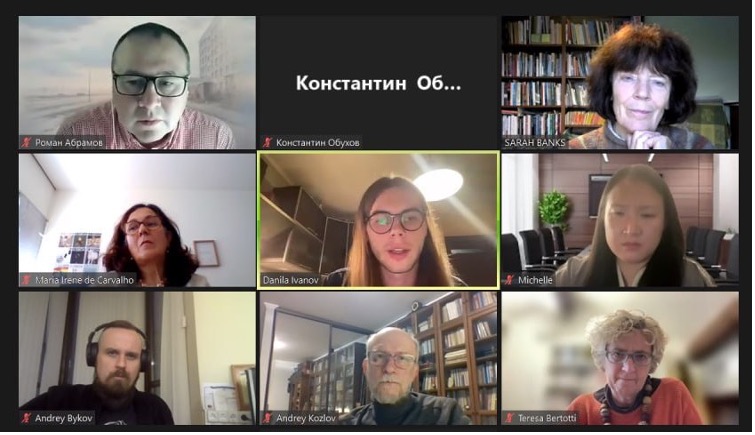Danila Ivanov and Roman Abramov presented their repport on ethical dilemmas of insclusive practices in art galleries at the SWERG round table
Roman Abramov and Danila Ivanov, researchers of the Laboratory, spoke at the round table of the Research Group on the Ethics of Social Work [SWERG] (UK, Durham University; Slovenia, University of Ljubljana).

On November 20th, D. Ivanov and R. Abramov spoke at the round table dedicated to the report "Ethical Dilemmas of Social Inclusion Practices in Art Museums: The Case of Moscow Exhibition Spaces Network». The round table was organized by the SWERG group led by Professor Sarah Banks (Durham University, UK) and Ana Marija Sobočan (University of Ljubljana, Slovenia).

The report considered the ethical dilemmas faced by small museums in Moscow, and also presented a concise history of the organizational and socio-cultural formation of a network of local art galleries in Moscow, which causes a number of ethical dilemmas.

Among all the dilemmas, two could be distinguished: 1) how ethical it is to develop inclusive programmes on the basis of educational activities about contemporary art, taking into account that in the course of such a process, the subject of inclusion has a chance to develop the appropriate elements of identity, which, given the a priori precarious position of the subject, can complicate his/her further integration without the institutional support of the art gallery (given that the very erudition on the topic of contemporary art does not allow to be "included" in the community of those involved in the relevant topic); 2) the development of inclusive programmes may come into conflict with the autonomous artistic expression of specific works of art: as a consequence, the autonomous actualization of an exhibition project may contradict the creation of inclusive conditions for this project; moreover, the status of an autonomous artistic expression on the topic of inclusion, but without a direct claim to inclusivity, becomes problematic, as well as an inclusive work of art, created without a claim to artistic autonomy and only for the purpose of developing a "positive social function."

After the presentation, a discussion was opened, where the issues of methods for researching ethical dilemmas were highlighted, the links between the concept of inclusive programs and the foundations of social work were clarified, and the specifics of the differences between the British and Russian contexts were clarified. The discussion was attended by representatives of Durham University, as well as permanent members of SWERG, colleagues from the International Laboratory for Social Integration Research and free listeners from other countries and universities.



